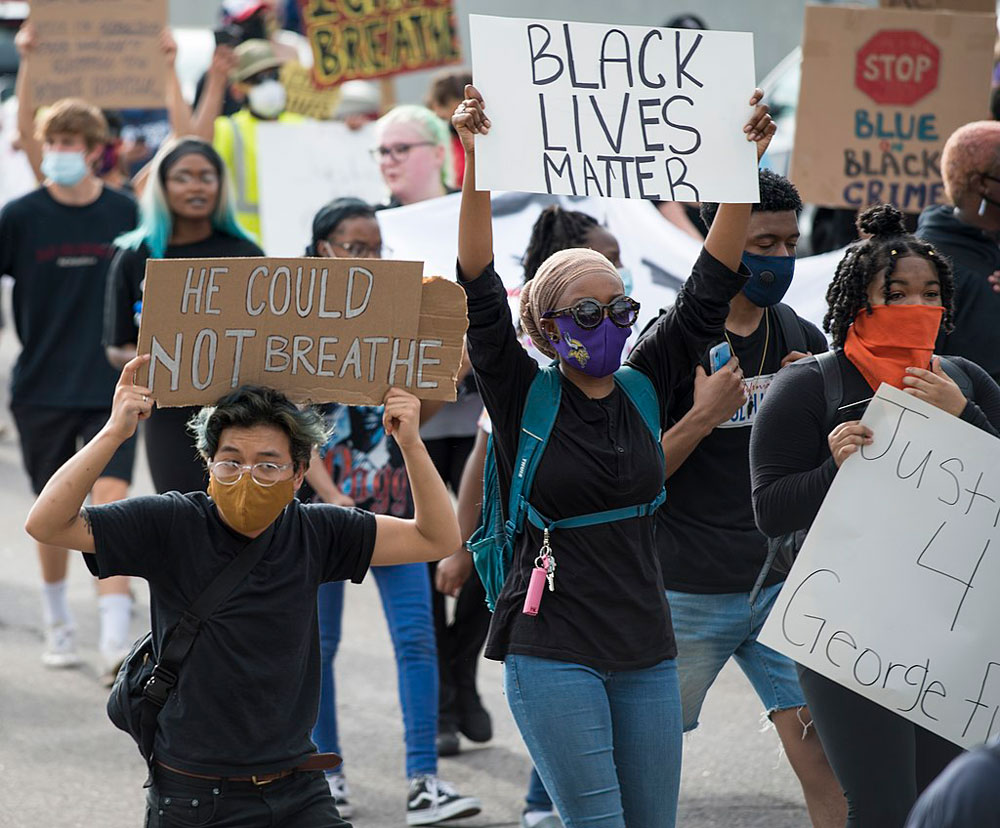
This article is the first in a series of community voices that NPQ is running in response to our call last Friday regarding how we can build solidarity and achieve racial justice.
“Liberty and justice for all” has never been true in the history of the United States. The US Constitution, which ensured the rights of white male property-owners, did not include rights for many of the people present in the country at that time. The recent incidents of anti-Black violence have only served as another example of the ever-present inequality in our country.
The nonprofit sector has been called a “value guardian,” and as such should advocate for and support entities and legislation promoting justice for all. The work of the sector moving forward should strategically engage three elements: policy change, moral leadership, and racism.
Public policy is what the government decides to do or not to do. Injustice continues, to a certain degree, through government action or inaction. Public policy, however, can also be influenced by grassroots issue networks advocating for their causes. The responsibility for social change does not rest with the government but also with the governed. The Advocacy Coalition Framework (ACF) is a theory of policy change which provides an approach which is both top-down and bottom-up because of its emphasis on the need for changes in beliefs and values to bring about policy change.
Legislation regarding hate crimes and local statutes relating to police brutality must lower the threshold for pressing charges and remove the “state of mind” or “intent” clauses, which do not focus on the impact of crimes that suggest and demonstrate racial bias or human indifference. Doing so illustrates the value that all people and their lives are of worth and can be supported by legislators and community activists.
Sign up for our free newsletters
Subscribe to NPQ's newsletters to have our top stories delivered directly to your inbox.
By signing up, you agree to our privacy policy and terms of use, and to receive messages from NPQ and our partners.
Some have shared that there is a need for leadership in this season where we find ourselves at the intersection of social, political, economic, and public health crises. However, not all leadership is created equally. I am calling for the nonprofit sector to support what Robert Franklin calls moral leadership in all of our institutions. We desperately need moral agents and moral leaders, to paraphrase Franklin—people of character who serve others and inspire collaboration in community. Especially in this period of elections across the country, we need more than effective leaders who serve narrowly circumscribed constituencies. I am calling for the electorate to support moral leaders to serve the common good.
From the inception of our country, the pall of racism has served to undermine the struggle for the rights of full citizenship and complete integration into US society for people of color. The roots of racism, found in the myth of white racial superiority, has contributed to the positional asphyxia of groups deemed “less than human” or “other” by the dominant society.
The nonprofit sector is uniquely qualified to fight racism due to its vast economic and academic resources. Our institutions of higher education can serve as centers of truth, reconciliation, and justice where our citizens can be educated, enlightened, and empowered regarding the legacy of racism and how it can be dismantled. I also challenge the nonprofit philanthropic and foundation community to allocate three percent of its wealth to engage in works of justice in communities of color to include education as well as social and human services.
Once again, there is a window of opportunity for change brought together by the multiple streams of problems, policy, and politics, per John Kingdon. The nonprofit sector as our “value guardian” can demonstrate in tangible ways the highest and best of our human values through direct strategic action. Let us act in concert now and, to paraphrase Shakespeare, take the tide when it serves or be left once again in misery and shallows.












